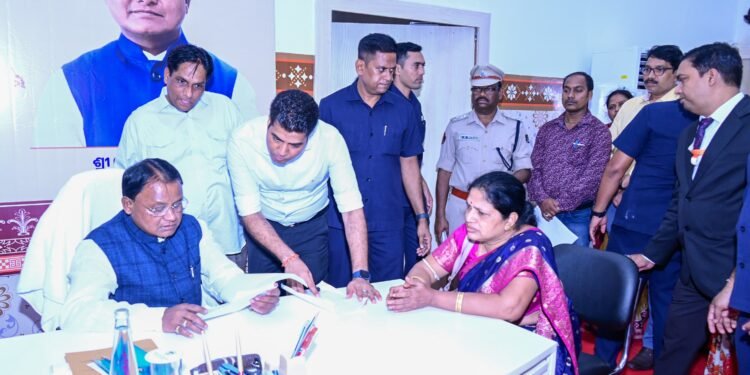Bhubaneswar- In a significant step toward inclusive governance, Odisha Chief Minister Mohan Charan Majhi will soon hold a public grievance hearing in Bhawanipatna, Kalahandi—reaffirming his government’s promise to take administration to the doorsteps of people in remote districts.
This upcoming visit to Kalahandi isn’t just a bureaucratic exercise—it is a continuation of a growing connection between the state’s leadership and its citizens. So far, the Chief Minister has held 12 grievance sessions, most of them in Bhubaneswar and one in Sambalpur. Now, with his decision to reach deeper into western Odisha, the CM’s team is crafting a new narrative—one where governance doesn’t remain confined to corridors of the capital.
At each of these sessions, nearly 1,000 people are heard, their grievances ranging from health to housing, livelihoods to education. Among them, those battling critical health issues receive priority attention. This year alone, Rs 53.5 lakh has already been disbursed to 48 individuals in need—each sum more than just a financial aid, it is a message of hope.
Minister of Revenue and Disaster Management, Suresh Pujari, shared that the government has addressed over 93% of grievances so far—10,132 out of 10,894—a testament to the intent behind every session. Plans are now in motion for the Chief Minister, along with other ministers and top officials, to travel district by district, ensuring the promise of service reaches every citizen, not just those with access to the capital.
This initiative also forms a key part of the government’s broader Vision 2036–2037 roadmap—where decentralised governance, rapid response, and transparency are guiding pillars.
As the preparations begin in Kalahandi, there is a renewed sense of anticipation. For many in the region, this is more than a visit—it is a moment when voices long unheard may finally find a listener. When pain may meet promise. When governance, finally, comes home.






